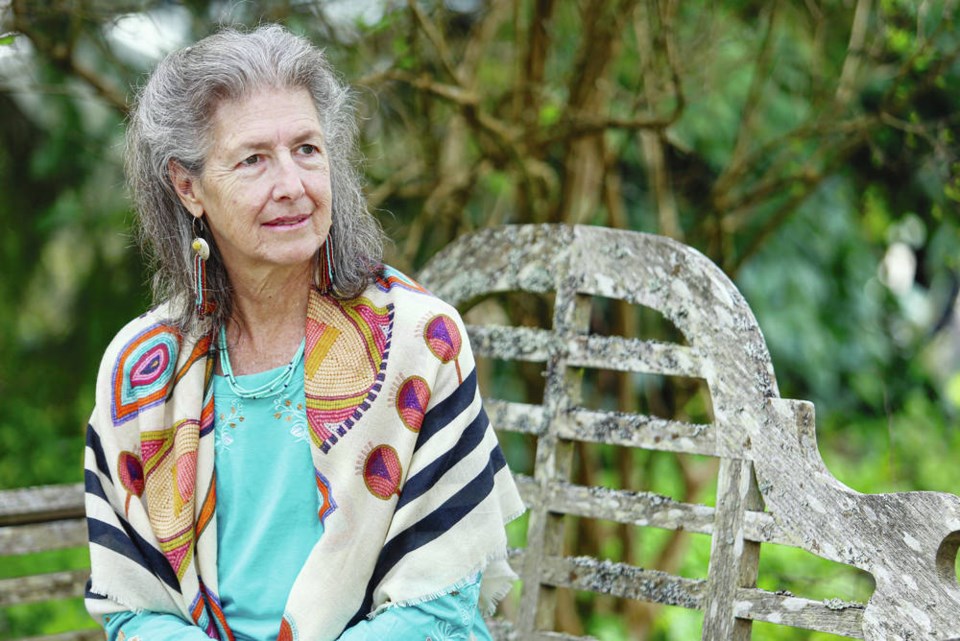Late-stage cancer patients undergoing chemotherapy say it was a blow to hear the province’s top doctor and health minister deny their appeals this week for a quicker second dose of COVID‑19 vaccine.
Cancer patients and their advocates have mounted a national campaign asking for a second dose within the manufacturer’s recommended interval — three weeks for Pfizer-BioNTech and four for Moderna — pointing to emerging research that the first-shot response in immune-compromised patients is negligible.
Provincial health minister Dr. Bonnie Henry was asked this week if B.C. would follow the lead of Ontario and Alberta in giving immune-compromised people — including chemotherapy patients and organ-transplant recipients — a second COVID vaccine dose within three to four weeks.
“At the moment, no,” Henry said Monday. “The best protection for everybody is for more people to be immunized, to have that higher level of protection from a single dose and reduce the risk in our communities by reducing the amount of virus that’s circulating in our community.” Henry said the B.C. Centre for Disease Control is “monitoring vaccine effectiveness in every single person … so, if we start to see breakthrough infections or that the vaccine effectiveness is waning in certain populations, we can change our strategy, but we have not seen that yet.”
Henry noted she is advised by experts at the Provincial Health Services Authority and the National Advisory Committee on Immunizations. This month, NACI affirmed its recommendation to delay second doses up to four months to offer more people a first dose, but left it to provinces and territories to decide on exemptions for high-risk groups.
Henry played down research suggesting cancer patients undergoing chemotherapy are insufficiently protected by the first dose. “Just because one small study has shown that a certain group of people had not yet or did not mount an antibody response does not take away the basic premise of the program,” said Henry.
Researchers in London published a paper in The Lancet this week suggesting a single dose of the Pfizer vaccine leaves many cancer patients only partially protected, based on data collected from 151 cancer patients and 54 healthy controls. The study found that three weeks after receiving one shot of Pfizer, cancer patients had an immune response of 18 to 38 per cent (the low end was for those with blood cancers), compared with 94 per cent in those without cancer.
Oak Bay’s Eloise Spitzer, 68, is undergoing chemotherapy for breast cancer that is now deemed incurable — she had a mastectomy in 2001 only to have the cancer return in January 2020. It has spread to her bones.
Spitzer, a former deputy minister who has worked for past NDP premiers Mike Harcourt and Glen Clark, as well as with the present premier and health minister, said she wrote to the province on April 1 asking that second doses be accelerated for all extremely vulnerable people, “or at least for those of us with terminal illnesses,” but never heard back.
Dr. Keith Stewart, director of the Princess Margaret Cancer Centre in Toronto, said people with cancer often have weakened immune systems because of the disease and the treatments for it.
COVID-19 vaccines trigger the body’s immune response to produce antibodies that help fight off infection. But in cancer patients, that response will be diminished, said Stewart.
“Not enough cancer patients respond to the first dose to be comfortable leaving them without the second,” he said. “Even with the second dose, protection will be suboptimal. But any protection is better than none.”
Lise Berube, 39, a working mother of two young children, is undergoing chemotherapy for Stage 4 breast cancer that has spread to her lungs and brain. Berube said she is “truly disheartened” by the provincial health officer’s words this week.
Berube supports the fourth-month second dose for relatively healthy people, but said “taking this blanket approach with a population in which a single dose has shown to give a negligible response seems reckless and irresponsible.” Berube said she has written to NACI “desperately” urging them to make clearer recommendations for chemotherapy and organ-transplant patients.
Roberta Smith, 74, who is undergoing chemotherapy and expensive sessions of immunotherapy for metastasized breast cancer diagnosed last summer, was told her case was terminal, but said her tumours have been shrinking and she is headed toward remission.
“I’ve gone out of my way to beat this cancer that no one thought I could beat, spent my retirement savings to do this immunotherapy in conjunction with chemotherapy — which I’m appreciative of in B.C. — but given that we are extremely immune-compromised and receiving chemotherapy and immunotherapy treatments, we are in greater jeopardy than the average person of getting COVID without having a second dose.”
Just over 188,000 extremely vulnerable people in B.C. out of 263,000 have received their first shot, Health Minister Adrian Dix said this week, and another 10,000 had appointments booked.
— with files from The Canadian Press



